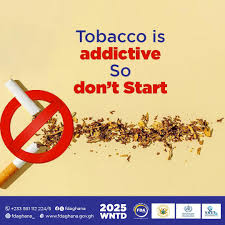The Minority Leader in Parliament, Dr. Cassiel Ato Forson, has highlighted the significant threat that the debt-ridden energy sector poses to Ghana’s economy.
According to the leader of the minority caucus in Parliament, Dr. Cassiel Ato Forson emphasized that the debt in the energy sector, which is over $1.5 billion to Independent Power Producers (IPPs), is the greatest risk to the nation’s economy. He stressed the urgent need for action to prevent any further deterioration in the situation.
He expressed concern that the Ghanaian population is already bearing the brunt of the current economic crisis and cannot afford to endure additional disruptions in the energy sector.
Dr. Ato Forson criticized the Akufo-Addo government for its mismanagement of the energy sector since assuming office in 2017.
He asserted that the upcoming 2024 general elections provide an opportunity for the National Democratic Congress (NDC) to rectify these issues and restore stability to the sector.
“The reality, Mr Speaker, is that this crippling indebtedness and the mess in the power sector, created by the Akufo Addo/Bawumia government, remains the biggest threat to the Ghanaian economy. This Akufo-Addo/Bawumia NPP government owes more than $1.5 billion to Independent Power Producers (IPPs).”
Dr. Cassiel Ato Forson, Minority Leader
The former Energy Minister under the John Mahama administration, Emmanuel Armah Kofi-Buah, said the Electricity Company of Ghana (ECG) is a major contributor to the country’s power sector challenges.
He said ECG has become the weakest link in the energy sector value chain. The energy sector value chain mainly comprises production, transmission, and distribution.
Recently, Ghanaians have experienced an unstable power supply in various parts of the country. Consequently, the Minority in Parliament, Civil Society Organizations (CSOs), and energy sector players have called for a load-shedding timetable from ECG to help citizens plan their daily activities.
ECG Confirms Possible Blackouts
The Electricity Company of Ghana (ECG) has warned the public of power outages between 7 pm and 11 pm due to operational challenges.
The company said 630 distribution transformers within communities in its operational areas are at full capacity due to increased demand.
ECG said this may result in blown fuses and broken conductors, causing cuts at peak load hours (7 pm – 11 pm) in the affected areas.
“We wish to assure our customers that transformer upgrading and new projects are ongoing to relieve these transformers to ensure a more reliable power supply. We continue to seek the support and patience of affected customers as we work to improve our power distribution system.”
Electricity Company of Ghana (ECG)
The statement further advised customers within the under-listed communities/localities to report any localized outage or voltage fluctuations to the ECG Call Center or reach them on their social media handles for prompt rectification.
According to the Managing Director of ECG, Samuel Dubik Mahama, the company recently grappled with issues of maintenance rather than fuel-related problems.
“We are having major maintenance issues, the issue we are having now has nothing to do with fuel. You are relying on a power plant that is to give you about 360 megawatts then around 4 pm the gas emergency safety valve has a problem. What do you do? It is a machine. The machine failed us and we kept on saying that it’s a machine issue that we were trying to fix.”
Electricity Company of Ghana (ECG)
However, the national power distributor ECG said the company was not undertaking any load shedding that requires a timetable.
ECG explained that the intermittent power outages have been caused by maintenance issues and, in some cases, an overload on their transformers, as well as some localized underground cable faults, among others.
“What we are experiencing now is caused by a lot of overload. A lot of transformers have a lot of customers on them more than what we have prescribed. Apart from underground cable faults within some localities, some power plants also undergo maintenance.”
Electricity Company of Ghana (ECG)
The debt in the energy sector has had a wide-ranging impact on the daily lives of Ghanaians, from increased living costs and power outages to job losses and reduced investment in other sectors. These challenges underscore the need for effective debt management and investment in the energy sector to improve the economic and social well-being of the population.
READ ALSO: Older Politicians Dominate in Ghana’s Political Power







